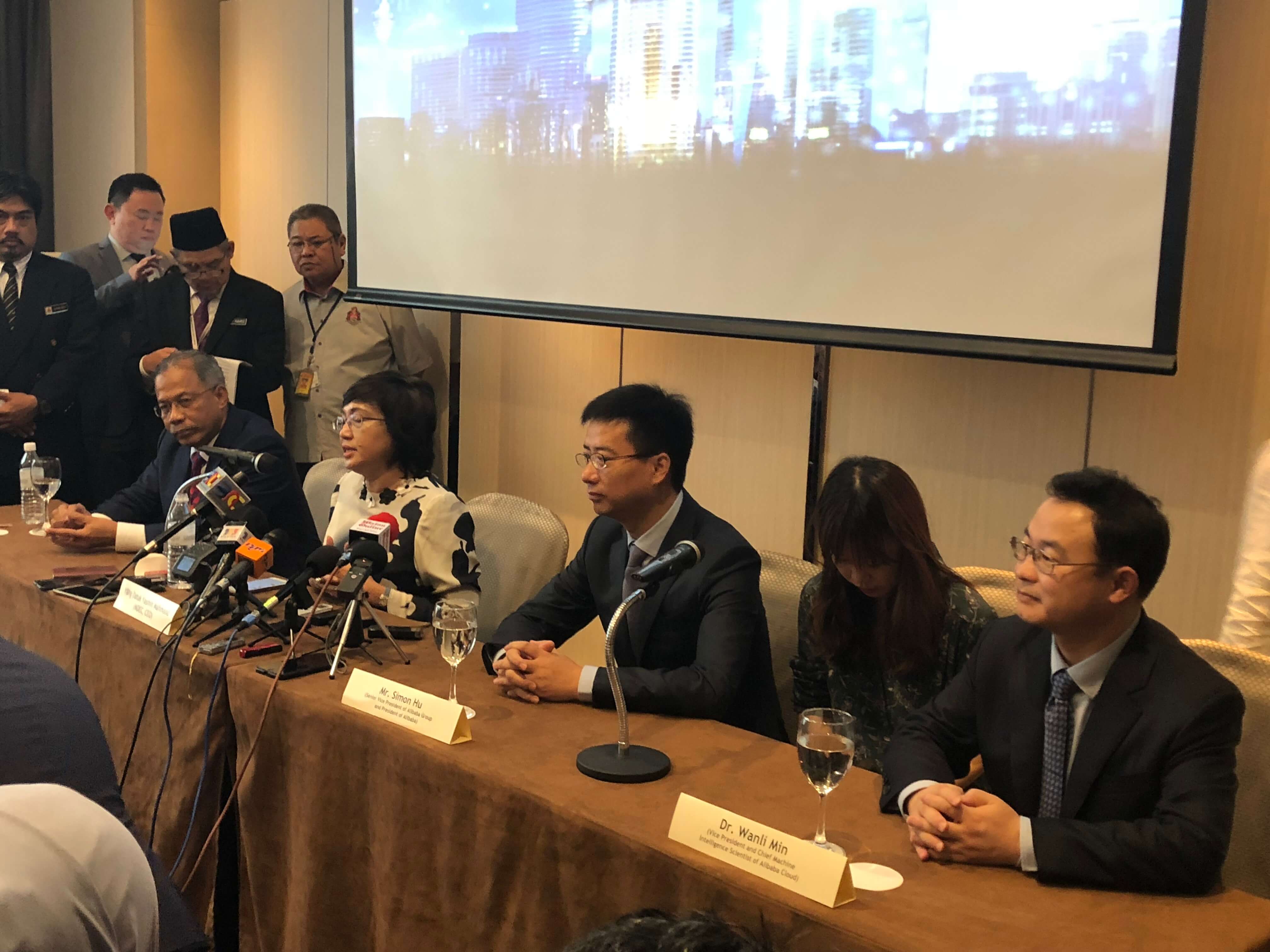
Kuala Lumpur is gearing up to be a smart city soon | Source: Pixabay
How Malaysia plans to win the Smart City race
THE emerging trend of countries progressing towards smart cities is ever-growing. The all-encompassing aim of a smart city is to enhance the quality of living for citizens through smart technologies. And with an estimation that 66 percent of the world’s population will be living in cities by 2050, the importance of creating an improved system is crucial.
Through the enabling of local development and harnessing technology such as IoT and AI, the drive towards smart cities can improve many aspects of urban life.
Benefits of smart city transformation
Smart cities don’t just sound great but also offer several benefits such as:
- Improvements in operational efficiency through sensor technology
- Quality-of-life improvements designed to enhance the urban experience for both residents and visitors, for instance, smart parking and chatbots
- Economic development through the sharing of smart city data
- Research opportunities for academic institutions and organizations through the mountain of smart city-data
- Sponsorship opportunities created by adoption of smart city technology
Asian smart cities are increasingly on the rise. In the 2017 Smart Cities Index from EasyPark group, a smart parking company that advocates for smart city development, Singapore was listed at number two, as reported by Forbes.
According to the report, the country landed the second spot due to its “thriving business ecosystem, urban planning successes, quality of internet and its efforts towards clean energy”.
China is also leading the way in smart-city developments. Over 500 Chinese cities had proposed transitioning into smart cities last year.
And it seems that Malaysia is willing to make all the efforts needed to keep up with the big guys. Yesterday, at a ceremony in Kuala Lumpur, Alibaba Cloud, the cloud computing arm of Alibaba Group, announced the launch of its ‘Malaysia City Brain’ initiative.

Press conference at the Alibaba cloud ‘City Brain’ announcement yesterday in Kuala Lumpur. Source: Shutterstock
The project has been launched in collaboration with the Malaysia Digital Economy Corporation (MDEC), the country’s digital economy development agency, and Dewan Bandaraya Kuala Lumpur (DBKL), the city council in the capital.
The City Brain initiative is developed on Alibaba Cloud’s cloud computing infrastructure and seeks to support Malaysia’s digital transformation with cloud technology and artificial intelligence.
The initiative represents a significant milestone with Malaysia being the first country overseas to adopt the City Brain solution.
“Malaysia is a dynamic country, standing at the forefront in SouthEast Asia and the global arena in terms of digital transformation,” said Simon Hu, Senior Vice President of Alibaba Group and President of Alibaba Cloud at the announcement of Malaysia’s City Brain in Kuala Lumpur today.
“If Rome brought the world the sewage system, London introduced the subway system, New York contributed to the world the power system, we hope this time, Hangzhou and Kuala Lumpur will provide our future generations with the ‘city brain’,” he added.
The solution is powered by Alibaba’s large-scale computing engine, Aspara, which enables a comprehensive suite of acquisition, integration, and analysis of big and heterogeneous data generated by a range of sources in urban spaces through video and image recognition, data mining, and machine learning technology.
Improved city mobility
According to Hu, in the first phase of the program, Kuala Lumpur will roll out the Malaysia City Brain to improve mobility in the city through traffic management.
Malaysian roads are considered among the best in the world and offer easy access to many places. But with a huge population of 1.8 million, these roads are often heavily congested with traffic.

Kuala Lumpur is notorious for it’s highly congested roads. Source: Shutterstock
Through the systems vast cloud computing and data processing capabilities, the City Brain can optimize the flow of vehicles and traffic signals by calculating the time taken to reach intersections. The system will also have the ability to generate summaries of data including traffic volume and speed in certain lanes, which can then be used to facilitate tasks such as incident detection.
As well as this, the City Brain can connect with various urban management systems such as emergency dispatch, ambulance call, traffic command, as well as traffic light control.
In the past, ambulances relied on the siren with the hope that others would give way and allow priority to the vehicle. But now through the integration and analysis of real-time data from these systems, City Brain can optimize traffic flow by, for example, identifying the quickest route for emergency vehicles to arrive at the scene in the shortest time frame.
This increases the chances of survival by 50 percent, according to Dr Wanli Min, Vice President and Data Mining Scientist at Alibaba Cloud.
“Every second counts and technology prevails. The patients and citizens are the ultimate winners”
“All this information can be captured in real time. In the past, we relied on operators, but today, we don’t need human eyes,” says Min.
Alibaba’s City Brain technology has been interlinking infrastructure in China since October 2016. In Hangzhou, it has been reported that City Brain has helped to increase traffic efficiency by 15 percent and achieve an average per vehicle savings of three minutes on traffic.
“It helped Hangzhou drop from 4th to 11th on the ranking of the most congested cities in China,” says Hu.
Through the power and functionality of the City Brain, Malaysian urban planners and city officials will be able to upgrade their governance and decision-making to transform the city into an intelligent one.
Enlisting the help of local talent
At today’s announcement of Malaysia’s City Brain, Simon Hu also introduced the Malaysia Tianchi Big Data Program, aimed at incubating experienced Malaysian talent for the next generation of cloud computing, AI, and big data technology.
“The program will be a powerful platform to pool and develop local data experts. It aims to incubate 500 data professionals and 300 startups with the cutting-edge AI technology within two years,” said Hu.
“Malaysian experts will compete with, and learn from, counterparts across the globe to develop best-in-class data technology, keeping Malaysia at the forefront of the global digital economy” said Hu on the introduction of the Tianchi program in Malaysia.
According to Yasmin Mahmood, CEO of MDEC, the Tianchi platform will lead to the acceleration of data talent in Malaysia.
“The Tianchi platform is something we are very excited about and we are very thankful to Alibaba for bringing it into Malaysia,” said Mahmood.
“We have put a focus on developing data scientists in Malaysia. [Prospective] data scientists always ask for real data to work with and for the ability to collaborate with other data scientists from all over the world, and this is what the Tianchi platform will bring,” Mahmood added.
Traffic management and beyond

The City Brain is set to also explore other areas such as education. Source: Shutterstock
It’s not just traffic that Alibaba is exploring. According to Hu, the City Brain is an open platform based on cloud computing and AI technology so that industry partners, start-ups, entrepreneurs, universities, and research institutions will have the opportunity to access the technology to drive further innovations.
“And in return, they can also contribute and elevate the platform, making it an important driver of digital transformation in Malaysia,” said Hu.
According to Mahmood, once the pilot has finished (which is expected to be at the end of May), the City Brain initiative will be deployed in other areas as well to expand its geographic reach.
READ MORE
- Ethical AI: The renewed importance of safeguarding data and customer privacy in Generative AI applications
- How Japan balances AI-driven opportunities with cybersecurity needs
- Deploying SASE: Benchmarking your approach
- Insurance everywhere all at once: the digital transformation of the APAC insurance industry
- Google parent Alphabet eyes HubSpot: A potential acquisition shaping the future of CRM














